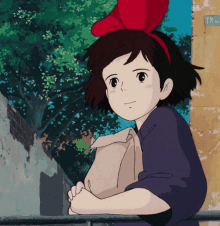Eight months ago the Indian Parliament rolled out a new law: the Citizenship Amendment Act, or CAA. In less than 24 hours, protests broke out in swathes across the country. Here's an analysis of what went wrong with what seemed to be a great law at first glance and how it was made worse.
Unlike the United States or Australia, immigration in India isn't strictly regulated. This is mostly due to the huge population, the rampant poverty and the sheer diversity, which means a good chunk of the populace hold no documentation, making censuses a Herculean task. The Citizenship Amendment Bill was introduced to begin some sort of regulation.
Let us slide into your dms 🥰
Get notified of top trending articles like this one every week! (we won't spam you)Take the Quiz: Which Indian city is the perfect holiday spot for you!?
Let's match you with an Indian city that you would love!
Public Opinion
Opinions on illegal immigrants vary vastly across the country; for many people immigrants are blots on Indian society, stealing jobs from a rising unemployed youth. In a few places like Kerala, immigrants (legal and otherwise) are respectfully bestowed with the term 'guest labourers', doing the work the local populace consider beneath their college degrees.
National Registry of Citizens
To truly understand why this act caused outrage, we have to look at another term: National Register of Citizens, or NRC. Pretty self-explanatory and sounds like a good idea, right? Wrong.
The Registry was put to test in Assam, where feelings against illegal immigrants were rife and the Act and Registry were welcomed. Initially, that is.
Note the use of "illegal", rather than "undocumented". When the lists were published, hundreds of thousands of people found themselves declared alien entities. The criteria for true citizenship lied in documents.
Beyond the fact that the extremely impoverished (who made up most of the lists) were unlikely to possess such documents, your passport, biometric ID or your ration card were not eligible. In its stead, a birth certificate became the end all and be all of the citizenship. If you were born after 1971, you would require your parent's documents.
Citizenship Amendment Act
The more affluent "alien entities" could buy their way out of the list, but the poorer sects would have no choice but to let themselves be deported or deposited at a detention centre. This is where the CAA comes in. The Citizenship Amendment Act states that it ensures to give eligibility for Indian citizenship to illegal migrants who are Hindus, Sikhs, Buddhists, Jains, Parsis and Christians from Afghanistan, Bangladesh and Pakistan, and who entered India on or before 31 December 2014.
This is where things get messy. The obvious exclusion of Muslims when coupled with the reality of Ahmadis , Uighyurs and Rohingyas who seek refuge in India, the Act becomes discriminatory and painted with a communal colour. When the Bill was introduced in Parliament, violent protests broke out in the Assamese capital and the neighbouring North-Eastern states.
Protests Break Out
The Bill was then passed with a 311:80 favour in the Lower House and a 125:100 favour in the Upper House. Soon after the protests had transmuted into full-blown riots. By 14 December, the protests had begun in New Delhi and spread out into the rest of the country. Several states not ruled by the centre majority, the Bharatiya Janata Party, or the BJP, declared that they would not implement the Act in their states.
However, when thugs broke into a university and assaulted students while the police were ordered to simply stand by, the protests gained even more momentum and more casualties. Students had become the focus and the face of the protests. A similar attack on Jawaharlal Nehru University only fuelled and fanned the flames. By mid-March, 3000 people had been arrested and approximately 70 had lost their lives, while hundreds sustained injuries.
The protests were part of a larger problem. The current BJP government has been oft accused of utilising and deepening the divide between the Hindus and the Muslims. Their members' attitudes against the Muslim population range from apathetic to downright hateful. Perhaps the reaction to the CAA would have been more subdued under a different government, but under a party notorious for their feelings of Hindu supremacy and distaste for secularism, the protests seemed unavoidable, in hindsight.
It is important to note that while most of the anti-CAA protests were protesting the exclusion of Muslims, many in the North East felt that India should close it's borders completely, not wishing to accommodate more migrants from Bangladesh, whom they share a border with. Illegal immigrants are seen as usurpers of the little opportunities for employment that exist and social benefits like rations, public education and healthcare.
Many political figures were accused of inciting hatred and violence, exposing the fragility of Indian society and the ways political parties took advantage of and benefitted from it. A notable example was when Kapil Mishra, a right wing politician gave a rousing, but ill advised speech, expressing his desire to "Shoot the traitors!". Which his devoted listeners then took to mean the entire Muslim population of Delhi leading to the week-long series of extremely violent riots in the capital that left many Muslims homeless and caused injury and death on both sides.
Violence had become a key component of the protests and the blame for it often used to smear the anti-CAA protesters, when in reality it was the police that incited the violence. Beyond the brutality, the CAA NRC debate had become much more than just a piece of disagreeable legislature, it was now becoming a battle between morality and faith. Both sides wished to show that their message was truer and more popular. Cheap tactics were being used to amass support; a hotline to show support for the law was spread around Twitter claiming to be lonely women (bobs and vagene pics, anyone?) or a free-for-6-months Netflix account, something that Netflix had to step in and clarify as fake.
Interestingly, the violence and gore that gave India's 2020 a fitting kickstart, and would have become the main focus of, if it were not for the coronavirus had very little effect on Prime Minister Narendra Modi's pristine and untouchable image, a worrying thought in a democracy, where leaders have to be held accountable and the complicity shown by the central government bigwigs cannot be seen as acceptable, when they themselves had a large part to play in the initial proceedings.
While the Citizenship Amendment Act, might have seemed like a good idea on paper, it was poorly executed in its handling of itself and of its dissent.










.jpg)




